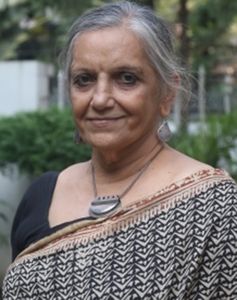THE SUPREME COURT judgment on the Bilkis Bano case is welcome. It is a great judgment from the apex court, sending all the convicts back to prison. It sends a good message to the people of India, particularly the women of the country. Their dignity and honour has to be respected by the courts and it has been done.
The Bilkis Bano case has been a historic one. It has gone on for so long and so many people have supported her. So, that is iconic. And the incident in itself was so horrid and it stands out in history―for three days the police were on the rampage. They were killing people and raping women. So, for that, justice has to be there and it has been delivered with this judgment. Also, it is not only about Bilkis Bano―they have killed so many people.
The Supreme Court could have been more careful in hearing the review petition filed by Bilkis Bano against the May 2022 judgment, which was dismissed in December 2022. This could have prevented the convicts from getting out. She was not heard when the convicts were granted remission. The Supreme Court has now said that she was not heard and her security was not taken into consideration at all. The top court also said that the order passed by it in May 2022 was nullified as the petitioner had suppressed facts and misled the court.
The statement released by Bilkis Bano after the Supreme Court judgment, which says that she can “breathe again, have wept tears of relief and smiled for the first time in over a year and half”, is moving and true. She has been in hiding and she was so scared when those convicts were released. She was afraid what they might do to her. And the way those convicts were welcomed―they were garlanded, people touched their feet and it was said that they were Brahmins and sanskaris (cultured)―sent such a wrong signal.
Some political parties such as the Congress are saying that within the two weeks time given by the apex court for the convicts to go back to jail, the present dispensation may try to do something which can prevent them from doing so. I doubt that can happen as it is a Supreme Court judgment. It is unlikely that in two weeks any other court will do anything. I am not sure what the Gujarat government can do. There is some apprehension, but I hope nothing happens.
My only concern is that questions were raised at the time of remission. There was moral indignation that how can remission be granted for such a serious offence. The Supreme Court has rightly commented that the Gujarat High Court did not have the jurisdiction and that it was not the appropriate [forum] to decide on the remission plea of all the men convicted for the “grotesque and diabolical crime… driven by communal hatred”.
The Supreme Court also said that the Maharashtra government had the jurisdiction to make that decision, but the act of remission has not been condemned. That is of concern to me. The court said Gujarat did not have the jurisdiction, but it never said anything about the act of remission itself.
As told to Mohit Sharma.



